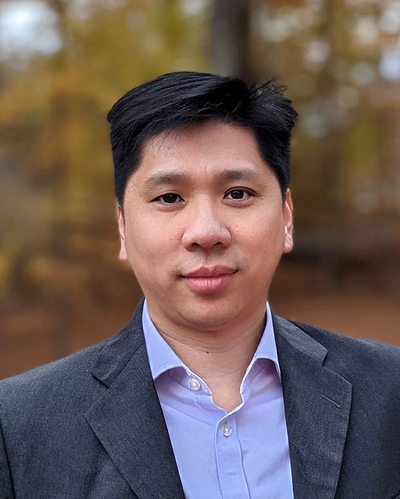
Research Topics
Dr. Li C. Cheung's research lies at the intersection of traditional quantitative epidemiology and novel methods to better understand the etiology and natural history of the multistate cancer process. He seeks to utilize epidemiologic findings to inform risk-based and benefit-based approaches to cancer screening and prevention.
Statistical Methods Research
Dr. Cheung develops novel statistical approaches to characterize the etiology and natural history of cancer. In particular, he focuses on developing multi-state models to assess the effects of exposures, biomarkers, and demographic factors, on the length of time study participants spend in different pre-clinical or clinical states. Such analyses are challenging in data from electronic health records—which provide rich resources but also include the bias inherent in clinical practice, with measurements taken at irregular intervals that may be related to underlying health issues of the individual or may be missing. Other key challenges include the misclassification of outcomes, interruption of the observed natural history process by treatment, and the temporal progression and regression of cancer precursors.
These statistical approaches will increasingly be needed as new technologies allow earlier observation of cancer precursors, more precise classification based on molecular and imaging features, and prospective cohorts assemble in large health care providers using electronic health record data. Among the many studies that will benefit from Dr. Cheung’s methodological work is the Connect for Cancer Prevention Study, a cohort of 200,000 adults in the United States designed to further investigate the etiology of cancer and its outcomes, which may inform new approaches in precision prevention and early detection.
Translational Research
Dr. Cheung collaborates with epidemiologists and clinicians to use insights into the etiology and natural history of cancer to develop novel precision prevention strategies. His interests span multiple cancer sites and have previously included cancers of the cervix and lung, where screening and early detection drastically reduce morbidity and mortality, and for oral cancer where screening approaches have yet to be defined.
Dr. Cheung serves as lead statistician for the consensus cervical cancer management guidelines. Beginning with the 2019 risk-based guidelines, cervical cancer management recommendations are based on the risk of having or progressing to precancer/cancer rather than on specific test results. This risk-based framework enables precise management by also incorporating past test results and other relevant covariates and allowing for consistent management as new screening technologies emerge.
He has also proposed clinical decision-making based on individual life-gained benefit, the gain in life expectancy if an individual receives an intervention versus no intervention. Such approaches are a useful alternative to risk-based approaches when cancer risk is correlated with competing mortality and patient frailty that inhibits curative treatment. He has applied these approaches to the question of who should undergo lung cancer screening.
He plans to extend his translational research program to other cancers, such as oral cavity cancer, and tackle questions specific to those sites.
Biography
Dr. Cheung received his B.S.E. in biomedical and electrical engineering from Duke University and his M.S. and Ph.D. in statistics from George Washington University. Prior to completing his Ph.D. and joining the Biostatistics Branch (BB) in 2016, he worked for 11 years as a statistician at IMS, Inc., supporting various research in DCEG. Dr. Cheung became a staff scientist in BB in 2018 and was appointed Earl Stadtman tenure-track investigator in 2021. Dr. Cheung has received numerous awards for his work, including an Intramural Research Award, an NCI Director’s Award, and the ASCCP Service Recognition Award.
Selected Publications
- Cheung LC, Ramadas K, Muwonge R, Katki HA, Thomas G, Graubard BI, Basu P, Sankaranarayanan R, Somanathan T, Chaturvedi AK. Risk-Based Selection of Individuals for Oral Cancer Screening. J Clin Oncol. 2021;39(6):663-674.
- Cheung LC, Berg CD, Castle PE, Katki HA, Chaturvedi AK. Life-Gained-Based Versus Risk-Based Selection of Smokers for Lung Cancer Screening. Ann Intern Med. 2019;171(9):623-632.
- Aron J, Albert PS, Wentzensen N, Cheung LC. Hidden mover-stayer model for disease progression accounting for misclassified and partially observed diagnostic tests: Application to the natural history of human papillomavirus and cervical precancer. Stat Med. 2021;40(15):3460-3476.
- Cheung LC, Pan Q, Hyun N, Schiffman M, Fetterman B, Castle PE, Lorey T, Katki HA. Mixture models for undiagnosed prevalent disease and interval-censored incident disease: applications to a cohort assembled from electronic health records. Stat Med. 2017;36(22):3583-3595.
- Cheung LC, Egemen D, Chen X, Katki HA, Demarco M, Wiser AL, Perkins RB, Guido RS, Wentzensen N, Schiffman M. 2019 ASCCP Risk-Based Management Consensus Guidelines: Methods for Risk Estimation, Recommended Management, and Validation. J Low Genit Tract Dis. 2020;24(2):90-101.
Related Scientific Focus Areas
This page was last updated on Friday, January 9, 2026


